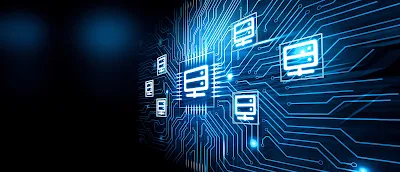 |
| Computing power |
There are several ways to measure the performance or power of any given device. In most cases, computing power is measured by its CPU speed relative to how many operations it can perform per second called FLOPS (Floating-point Operations Per Second). The higher this ratio is multiplied by the clock frequency, generally expressed in gigahertz (GHz), determines what we call mega FLOPS and once that has been
Computer technology has evolved rapidly since the invention of the first programmable computer in the 1940s. Today, computing power is more accessible than ever, allowing users to perform complex tasks in a fraction of the time that it would have taken just a few decades ago. This ever-increasing access to computing power has revolutionized the way that businesses operate and communicate, allowing for faster and more efficient operations. In addition, the proliferation of digital technologies has enabled us to explore and analyze data in ways that were never before possible.
Computing power is a critical component of modern life, allowing us to quickly and effectively process large amounts of data. Businesses of all sizes are now able to leverage the power of computing to automate and optimize mundane tasks, freeing employees to focus on more important work. Additionally, the insight and analysis that can be gleaned from data using computing power have enabled companies to make better decisions more quickly. Finally, computing power has also allowed for the development of systems that can predict future trends, which has enabled businesses to stay ahead of the curve in their respective industries.
How Computing Power Affects Your Everyday Life
Computing power affects almost every aspect of your everyday life, from the way you communicate with others to the way you shop for goods and services. You likely use or interact with a variety of devices powered by computing technology multiple times throughout each day. For instance, when you send an email or search the internet, your computer is using powerful processors to compile and transmit data quickly and accurately. When you use voice commands on a digital assistant to access information or control certain functions in your home, computers are processing these requests using advanced algorithms. With increased computing power comes improved accuracy and efficiency, allowing us to accomplish many tasks more quickly than ever before. Computing power also has made it possible for businesses and individuals alike to access ever-growing amounts of data that can be used for everything from forecasting market trends in business intelligence solutions to helping diagnose medical conditions through AI-enabled healthcare technologies.
Computing Power Benefits
The benefits of having access to a powerful computing system are numerous. First, it can be used to store and process large amounts of data much faster than traditional methods. This can save time, money and effort when dealing with complicated tasks or analyzing large datasets. Additionally, powerful computing systems allow for more sophisticated analysis and modelling of data, which can lead to more meaningful results and insights that would be difficult or impossible to obtain using traditional methods. Finally, such systems provide improved security compared to standard hardware-based solutions—making them ideal for sensitive applications such as financial services or healthcare.



.jpeg)
